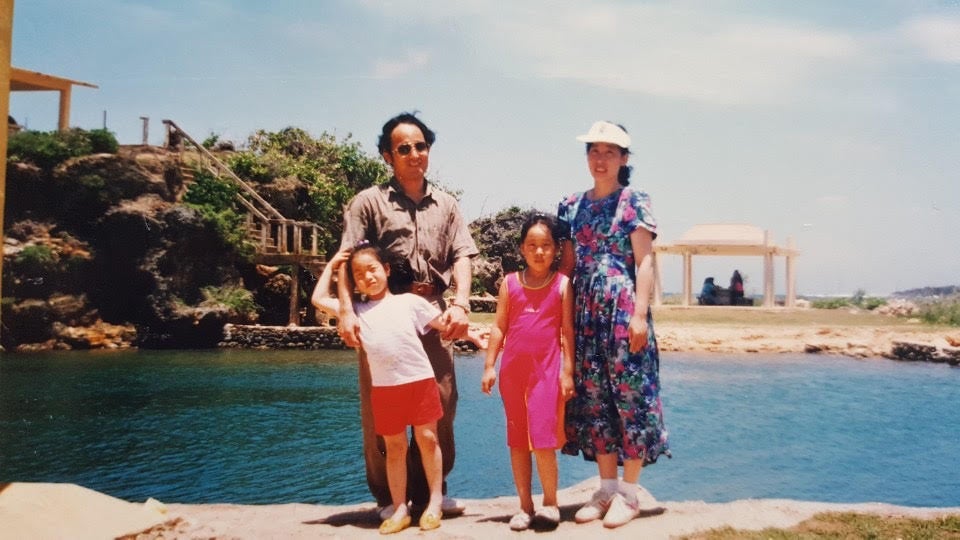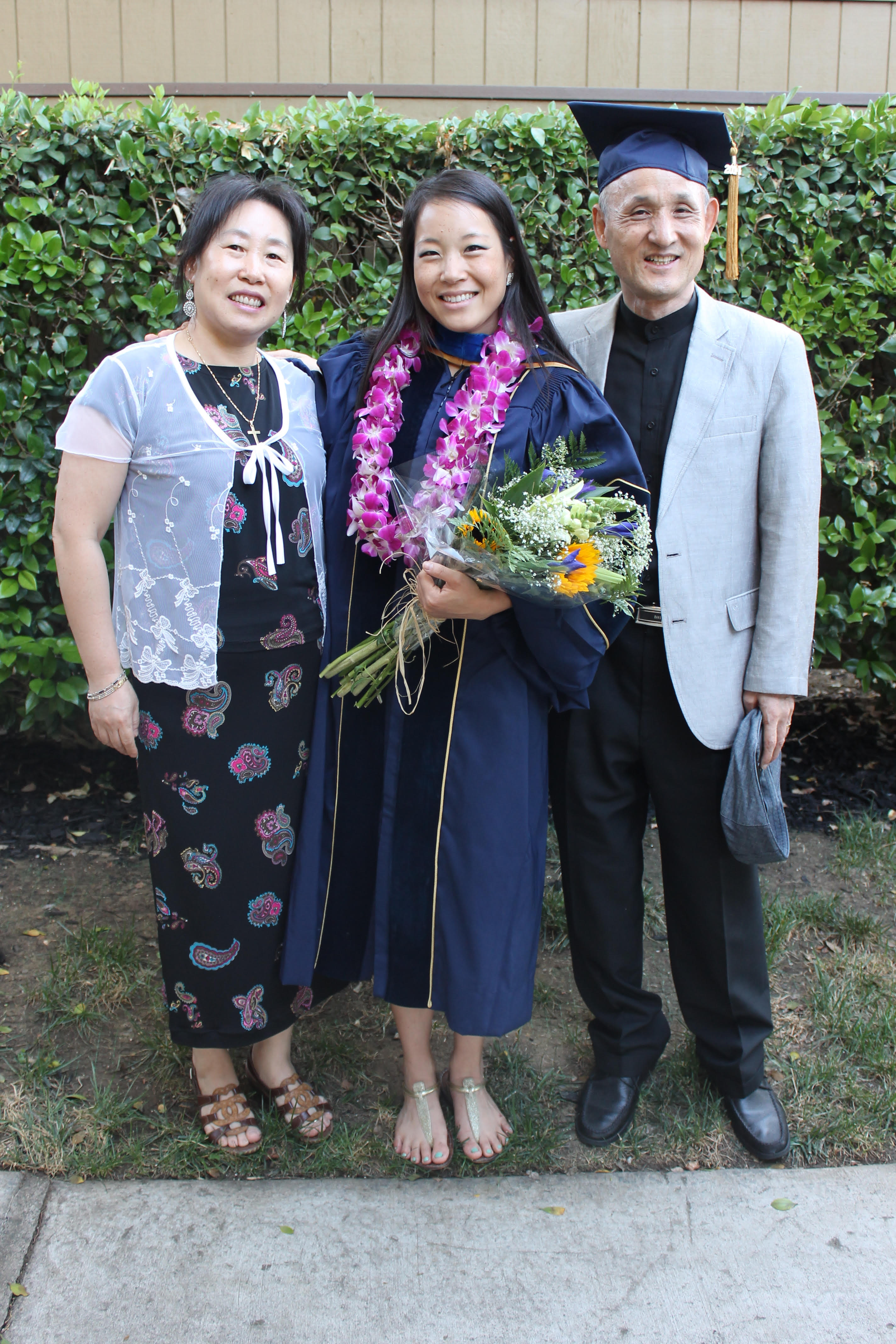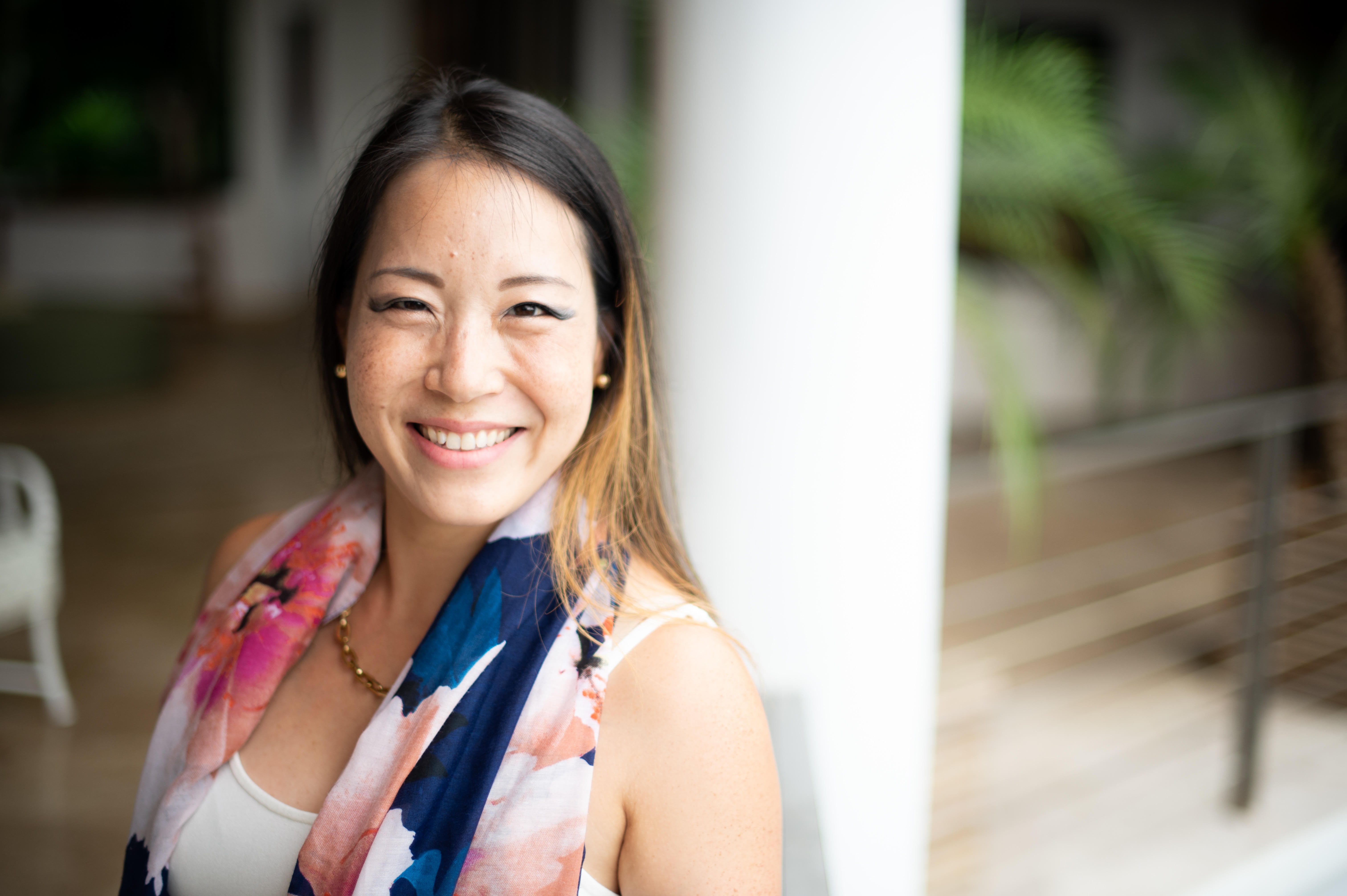When Life Experiences and Empathy Collide, Community Research Thrives
This article is a part of our Health Disparities Research Feature series.
Ever since Dr. Jin Kim-Mozeleski was young, she remembers being very curious. “I loved looking around and making connections, doing things, observing things. There was so much newness around me,” Dr. Kim-Mozeleski exclaimed. Born in South Korea, Dr. Kim-Mozeleski’s family immigrated to the U.S. Territory of Guam, where she learned to speak English and later moved to Boston, Massachusetts during high school.
Growing up wealthy in books, she loved Encyclopedia Britannica for children that focused on making and doing (arts and crafts)--even if she didn’t have the supplies to recreate what she read. “I loved reading and coming up with substitutes. This was my first way of thinking about experimentation and hypothesis testing in a childlike way,” Dr. Kim-Mozeleski explained.
Dr. Kim-Mozeleski’s first influence in research was her mother, who has a mental health disorder that affected her family. “I remember when I was a child, in Guam, we had health insurance for the first couple of years and it lapsed. There was a time we always went to the clinic for checkups and then there was a period of time where we relied on emergency care,” Dr. Kim-Mozeleski described what she now refers to as a “systemic issue […] Growing up with that and the culture I was in, I tried to make sense of it,” Dr. Kim-Mozeleski said. She acknowledged that she didn’t know that research was an avenue back then, but as she naturally became interested in psychology, that helped her think about the issue–having access to mental health treatment and receiving culturally appropriate care.
She served as a clinical research assistant after undergrad where she worked with psychiatric patients, and patients of color who were oftentimes involuntarily hospitalized. That experience influenced Dr. Kim-Mozeleski’s pivot from direct, one-to-one care to studying access to mental health care for racial and ethnic minorities.
Now, Dr. Kim-Mozeleski is an Assistant Professor in the Department of Population and Quantitative Health Sciences and Prevention Research Center for Healthy Neighborhoods in the School of Medicine at Case Western Reserve University.
As she thinks about the impact she’d like her research to make moving forward, she plans to focus on doing more intervention research that she described as tedious yet rewarding because “[...] the reward is in the process of doing it rather than the outcome (e.g., publishing a paper, receiving grant funding).” She encourages exploration of iterating interventions instead of continuing to document the same problems repeatedly. “What more granularity can we explore?” Dr. Kim-Mozeleski asked.
When asked what diversity, equity, and inclusion means to her, Dr. Kim-Mozeleski replied in the context of her current research program on tobacco-related health disparities. “In the work I do there’s a focus on racial/ethnic and socioeconomic diversity. It’s hard to extricate that from what I study. We didn’t get here by chance in terms of tobacco’s disproportionate impact on marginalized groups. And we need to be intentional about moving forward.” To that end, if Dr. Kim-Mozeleski had unlimited resources she would study the health benefits of guaranteed income and related interventions. “I’m so excited about the potential of that,” she exclaimed. “If people didn’t have to worry about meeting basic needs, what more could we accomplish as a society? What is the potential that is hidden within that barrier?” Dr. Kim-Mozeleski added.
Dr. Kim-Mozeleski received a CTSC pilot award in 2022 for developing a smoking cessation intervention that targets people who are food insecure. The intervention involves an economic assistance component, to reduce food insecurity during their cessation attempt.
Fast Five
- Favorite thing to do in Northeast Ohio: Moved to Ohio in January 2020 and didn’t get to experience all it has to offer just yet, but my favorite thing so far is the trees and seasonality.
- Favorite research innovation: Well done longitudinal studies
- Favorite restaurant: Aladdin’s
- Favorite place to go in Northeast Ohio: Cuyahoga Valley National Park - Salt Run Trail
- If I wasn’t a researcher, I’d be a…writer and designer.




